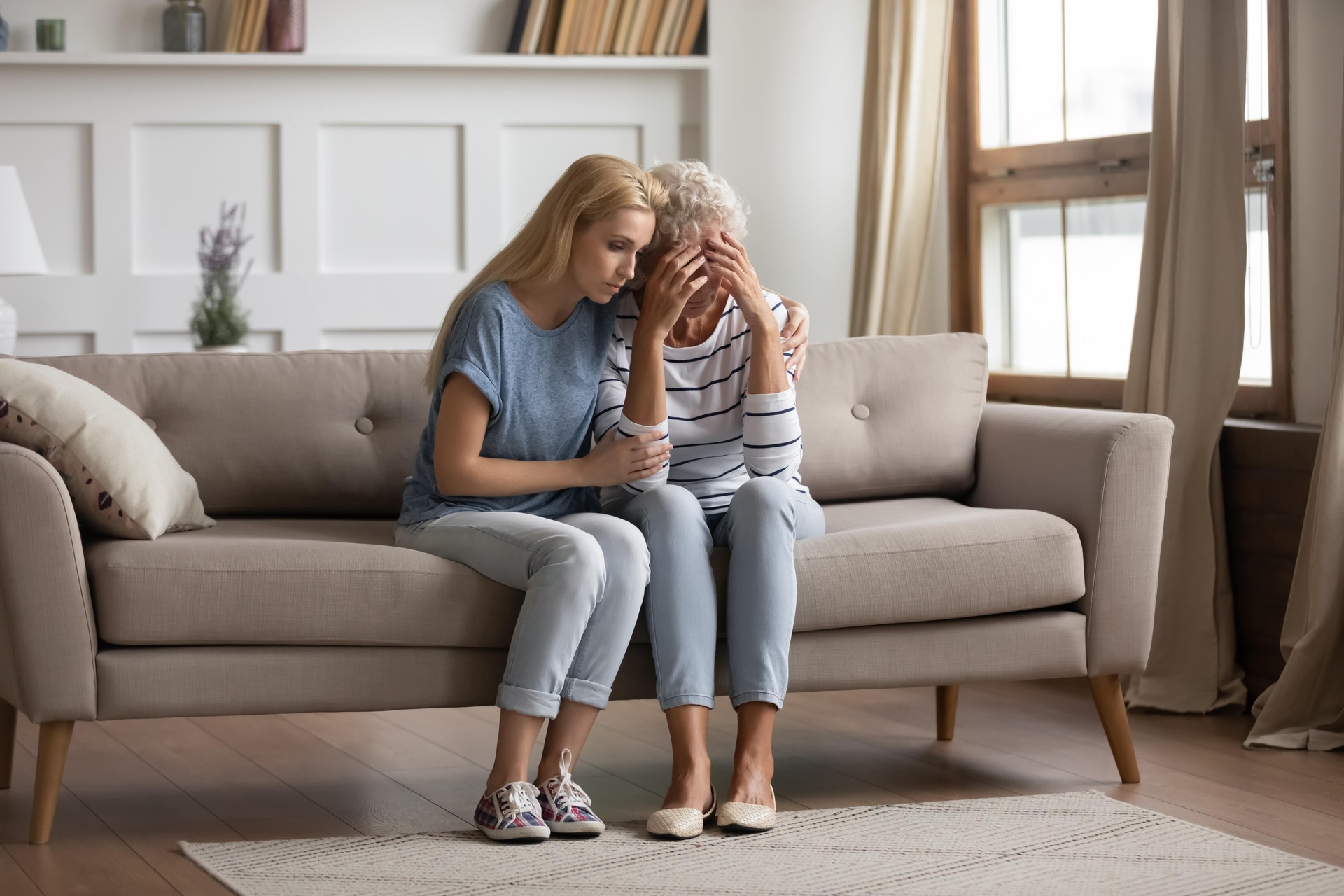Do you notice unusual changes in the behaviour of your elderly loved one in the evening (around sunset)? It could be a sign of sundowner’s syndrome (“sundowning”).
Sundown syndrome in the elderly is common in those with Alzheimer’s or other dementias. Potentially, up to 66% of older adults with these diseases suffer from sundowners, usually in the middle stages of dementia.
As their caregiver, you can support the health and comfort of elderly loved ones with sundowners. Keep reading to learn more about the syndrome and how you can support your loved one.
What is sundowner’s syndrome?
Sundowning isn’t a disease but a set of symptoms that reoccur at the same time of day (around sunset). The exact reason or cause is not currently known, but those with it experience any of all of the following symptoms:
- Confusion
- Anxiety
- Paranoia
- Frustration
- Aggression or yelling
- Pacing or wandering
- Unwilling or unable to follow simple instructions
- Crying
- Trouble sleeping
The above symptoms typically manifest around evening or sunset but can be noticed anytime during the day.
Sundowners triggers
The prevalence of sundowners usually begins in the middle and later stages of Alzheimer’s. By reducing their triggers, your loved one can find relief. Here are some factors that may trigger sundowner’s symptoms:
- Disrupted circadian rhythms
- Fatigue
- Dehydration
- Medication side effects
- Physical illness or pain
- Overstimulation during the day or preceding bedtime
- Mental or physical exhaustion
- Low lighting
If you suspect sundowner’s syndrome in your loved one, you should discuss it with their healthcare provider. They can provide tips to help your loved one avoid these triggers and side effects.
Top 7 ways you can support a patient with sundowner’s syndrome
If your aging loved one has been diagnosed with sundowning dementia, follow their doctor’s care recommendations. Here are the top seven ways you can support sundowner’s syndrome in the elderly.
1. Support with non-medicinal treatments
Talk to their doctor about non-medicinal treatment options. These can either help remove triggers or help their body respond healthily to triggers. You may try light therapy, music therapy, or slowly changing their surroundings until you find their happiest and healthiest environment.
2. Consider medical options
There are medicinal options your loved one’s doctor may recommend. These may be recommended depending on what symptoms they’re experiencing and their severity (or how it’s affecting their quality of life. Some patients find success managing sundowning symptoms with anti-depressants, anti-anxiety meds, and antipsychotics).
3. Calm with music therapy
Music therapy is showing promise to lessening sundowners’ effects on older adults. One study exposed 282 nursing home residents with dementia to personalized playlists one to three times a week for 30 minutes each for six months. The researchers found a general improvement in the quality of life for the first three months of the study.
Consider building a calming playlist of music your loved one enjoys and playing it when they feel agitated or when (or before) symptoms typically manifest. Consider their favourite music, gentle tunes, or relaxing sounds of nature.
4. Consider diet and supplementation with melatonin supplements
A proper diet can support overall health in seniors, helping them strengthen their physical body, mental toughness and cognitive functions. As a caregiver, ensure they’re eating enough fresh fruits and vegetables, healthy protein sources, and getting enough vitamins and minerals as their doctor recommends.
It’s usually advisable to avoid caffeine and sugar, as these can affect their ability to get quality sleep. Ask your doctor about melatonin supplementation if they need a bit more help falling (and staying) asleep at night.
Also, ensure they drink plenty of water because dehydration can worsen symptoms.
5. Support regular healthcare visits
Your aged loved one’s healthcare provider will continue to play a central role in their care. Ensure your loved one continues to go to regular doctor visits and that you discuss any changes in behaviour with their healthcare team. This is especially important if the patient with sundowner’s syndrome is on any prescription medication or has any other underlying medical conditions.
6. Helping with bedtime routine
As many symptoms of sundowners happen around bedtime, provide extra support and companionship during this time. You can help them pick evening activities that are calmer and less active so their bodies begin to tire and they sleep easier. Slowly dimming the lights and providing nightlights throughout the home can also help.
Help create a bedtime routine. Routines provide predictability during this time to avoid overstimulation or stress, which can trigger sundowner’s symptoms.
In those with sundowners, evening hours (or when their symptoms are the worst) is not a good time to discuss sensitive or overly emotional topics that could cause stress in your loved one.
7. Creating a peaceful home environment
Create a calming home environment throughout the day, especially as the evening hours begin. If guests have come to visit, ask them to leave earlier so your loved one can start winding down. If your loved one is doing music therapy, playing their playlist can be a great way to start a peaceful bedtime routine.
Staying in their home as long as possible (also known as aging in place) can help. Being around their familiar items and environment can help avoid severe sundowners. Unless they need more advanced medical care or no one can support them at home, doctors may recommend that those with sundowners stay in their homes as long as possible.
(If you cannot support your loved one at home, in-home care support workers and nurses can help. Talk to the team at Hero Home Care for more information about in-home care services for those with Alzheimer’s, dementia, or sundowner’s syndrome.)
If you need extra or respite care, hire an in-home caregiver
Caring for your loved one with dementia or sundowner’s syndrome doesn’t have to fall on you. The experienced caregivers at Hero Home Care can help if you need full-time, part-time, or respite care support.
Our caregivers are experts in dementia support and Alzheimer’s care, ensuring your loved one’s social, domestic, and health needs are met when you can’t be there. Their care can help your loved one age in place as long as possible in a familiar and loving environment while lessening their sundowner’s symptoms.
Book a free care consult today to learn how we can support your loved one with sundowner’s syndrome.

